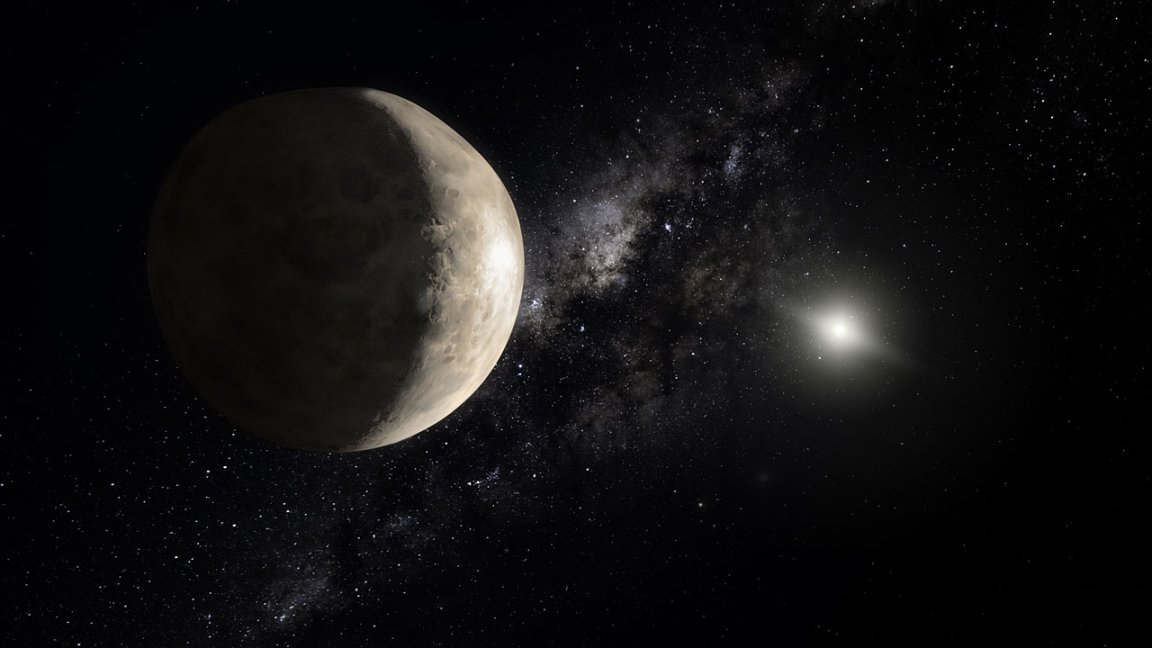
Set Apart
Every species has a special trait, an evolutionary advantage that allows them to survive and thrive…to keep ahead of the predators and on top of the prey. Our special trait should really come as no great surprise: It’s the human brain.
More specifically, it is our ability to explore and discover, to seek out new information and then communicate what we learn to others of our kind who can build upon (and improve) it. Part of this journey involves exploring the unknown, in venturing beyond our comfort zone and into the unknown. Yet, Eugene Cernan was last man to walk on the Moon…and that was over 40 years ago.
Lunar exploration was a key to unlocking dreams as yet undreamed.
Ultimately, there are few who understand the importance of knowledge and exploration—of boldly going where we’ve never gone—better than Cernan. As he famously stated, “Lunar exploration was not the equivalent of an American pyramid, some idle monument to technology, but more of a Rosetta stone, a key to unlocking dreams as yet undreamed.” Exploration is, in short, the lifeblood of humanity.
Alan Stern is another man who understands the value of venturing beyond Earth. After all, he is a man who (quite literally) took humanity to new worlds. Here’s why we need to keep going.
Pluto: A Voyage into the Unknown
For over 70 years, Pluto was the 9th planet in our solar system. Then, in 2003, the International Astronomical Union decided to reclassify this tiny world as a dwarf planet. But the demotion didn’t make it any less interesting.

Ultimately, Pluto is a mountainous rocky globe that swings through the icy reaches of our outer solar system. It has floating hills of nitrogen, striking atmospheric layers, and an enormous and volatile tail.
It lives some 5.8 billion km (3.6 billion miles) out in our solar system. For comparison, Earth is just 150 million km (92 million miles) from the solar surface—meaning that Pluto is a staggering 40 times farther from the center of the solar system than our own planet. And we went there…largely because of Alan Stern.
Stern is head of the New Horizons mission to Pluto, which had its historic flyby just a year ago (in the summer of 2015). Recently, I met with Stern at the 2016 Edison Awards. There, he highlighted the value of knowledge and of exploring the unknown—and he emphasized the monumental feats that we can accomplish when, as a society and as a world, we truly invest in these things.
Why Leave Home?
When asked about the value of venturing out into the cosmos to explore, Stern was quick to note that such enterprises are worthy for a number of reasons, but that, for him, two stick out in particular: “Beyond the obvious—that we’re creating new knowledge—we create a greater society. We do something which is, in the case of great exploration, historic. It’s something people read about, not just days and weeks later, but decades and centuries later. It makes a mark for our time of what we aspire to be, which is a greater society.”
In short, the things that we invest in (whether that is sports, or war, or science) are a direct reflection of both the values that we hold and the society that we are currently building.

Stern adds that, while globe spanning enterprises obviously impact society as a whole, they also have a great influence on individuals. He asserts, “It inspires. Particularly, it turns young people on to science, technology, engineering, and math careers, and it inspires them to be a part of the knowledge and the tech economy.”
Stern continues by highlighting the significance of such encouragement: “Nothing in what we do with the technology, the management, the innovation, nothing in the science that we can accomplish is as important…nothing is as important as the way that we can touch people with inspirational projects like this.”
He concludes by noting that, in these respects, through such exploration and discovery, “We do something a little larger than life, we create the future.”
So, Where to Next?
We have traveled to Pluto, and we are well on our way to the Kuiper belt. We have even traveled into interstellar space. So, where do we go next?
Of course, there is still a lot of space left to explore, but when I asked Stern the next great project that he’s most excited about, he didn’t mention a trip to Europa to search for alien life or the first off world colony—he spoke about humanity.
When people can live two or three times the current lifespan, I think it’s going to change our society in fundamental ways
“On the very largest front, the things that I’m most excited about have to do with life extension, because when people can live two or three times the current lifespan, I think it’s going to change our society in fundamental ways,” Stern asserts. And he continued by noting the ways in which longevity will fundamentally alter how we think and live: “The way that we care about the environment because we have to stick with it over a lot longer period, the way you care about the future, and about how we all get along with each other…I think all those things are going to be radically transformed by life extension. I think it’s one of the most exciting frontiers in science.”
And in the end, this is really what all science and discovery is about—making us better humans.
This interview has been lightly edited for brevity and clarification.